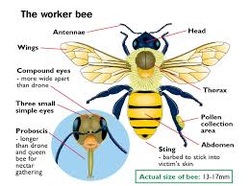
Sound like a typical Saturday at your house? As parents we are often on "auto-pilot" as we manage the routines around work, school, activities and errands. This management skill is called executive functioning. It allows us to set goals, plan, initiate, monitor our progress, review our successes (or failures) and learn from our experiences. In short, executive function is the set of mental processes that helps connect past experience with present action. We use it to perform activities such as planning, organizing, strategizing, paying attention to and remembering details, and managing time and space.
Needless to say, school success is highly dependent upon executive function. It enables students to regulate their behaviour and to perform those tasks that that facilitate learning. EF allows students to plan; keep track of time; multi-task; build on past experience; evaluate and reflect; make mid-course corrections; ask for help; and, exercise self-control.
However, unfortunately, many of our students have challenges that get in the way of their executive functioning skills. These problems manifest themselves in a number of different ways. Students who struggle with executive function have difficulties with initiating projects; predicting how much time a task will take; relating a story in a sequential fashion; planning and prioritizing; adapting to changing conditions; or retaining information from something that they have read while trying to answer questions about it.
Often when educators think about executive function, they focus on organizational skill development such as time management, developing organizational systems or planning and prioritizing. While this works for many students, there are clear barriers that prevent some children from easily mastering these skills. For them, this traditional approach does not work.
A key EF challenge can be a product of working memory, which is the ability to hold information in memory while performing complex tasks. It incorporates the ability to "draw on past learning or experience to apply to the situation at hand or to project it into the future".
Students may also show a weakness with working memory, which is like “seeing in your mind’s eye.” This is an important tool in guiding your actions. Working memory is your brain’s Post-it note, says Tracy Packiam Alloway, PhD, assistant professor of psychology at the University of North Florida in Jacksonville, Florida. “It makes all the difference to successful learning,” she says. You can think of working memory as the active part of your memory system. It’s like mental juggling, says H. Lee Swanson, PhD, distinguished professor of education with the Graduate School of Education at the University of California, Riverside. “As information comes in, you’re processing it at the same time as you store it,” he says. "A child uses this skill when doing math calculations or listening to a story, for example. She has to hold onto the numbers while working with them. Or, she needs to remember the sequence of events and also think of what the story is about" .
Other executive functioning skills include: response inhibition which is the ability to think before you act including the ability to resist the urge to say or do something before you take the time to evaluate what impact your behaviour might have on a given situation; emotional control, that is, the ability to manage emotions, controlling and directing your behaviour in order to achieve goals and complete tasks; and, sustained attention which is the capacity to maintain attention to a situation or task in spite of distractibility, fatigue or boredom.
At our school we devote the first part of each day to working on developing and enhancing executive functioning skills with our students. Our academic division core teachers work in partnership with our Social Emotional Learning counsellors to support all of our students in this process.
What sorts of things do we do?
Working memory supports include: cognitive orthotic devices such as written agendas or organizational apps; posting daily schedules, weekly calendars, "to do" lists; giving directions that prompt reference to past experience; breaking tasks into manageable chunks; organizing student workspaces to minimize clutter (at home this could mean having dedicated spaces for certain tasks); and, making sequentially stepped process checklists ("first do this, next do this, etc.").
For response inhibition and emotional control issues you can: provide distractions; set time limits; model delayed gratification; reduce or eliminate triggers; remove the child from the situation; and, teach and rehearse coping strategies until she or he have internalized them.
To sustain attention you can try: reducing distractions; modifying or limiting the time on task; using peer coaching; providing active exercise breaks; and, reinforcing successful focussing.
In the final analysis, success in school, like everyday life, demands that you not only effectively plan and implement tasks in a logical, sequential fashion but also learn how to self-regulate as well. After all, we all know drivers who have their destination, route, and timing all planned out in advance but cannot cope with any variation that might get in their way. So next time you see someone gripped by "road rage", you are probably witnessing a breakdown in their executive functioning. Probably a good idea to just get out of their way!



 RSS Feed
RSS Feed
